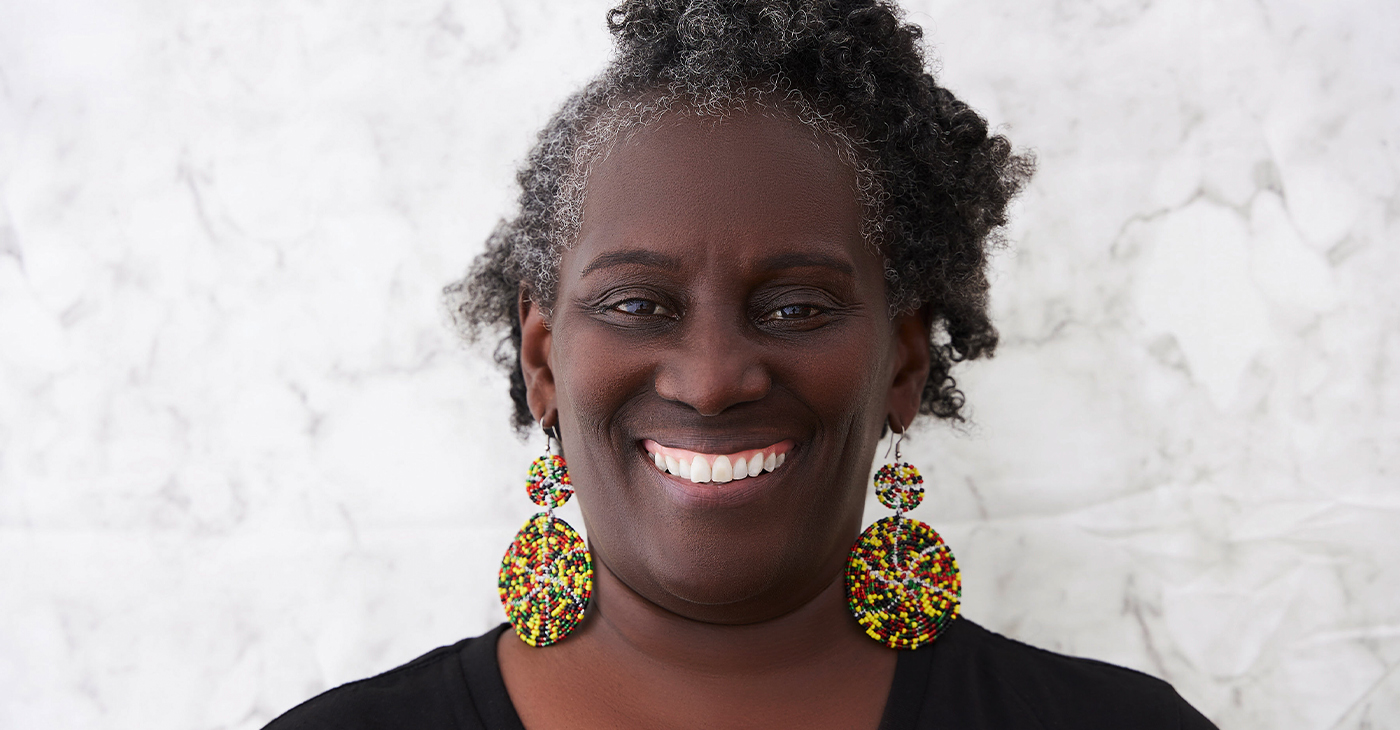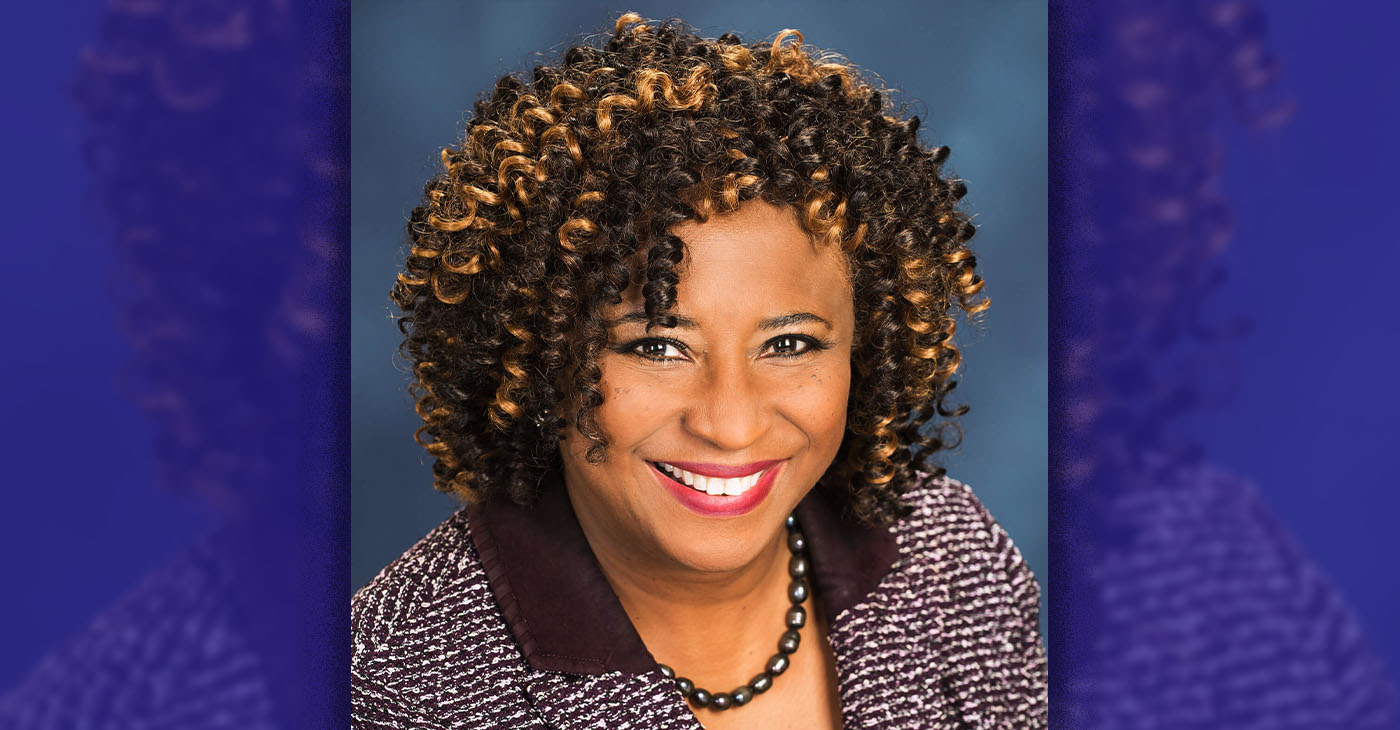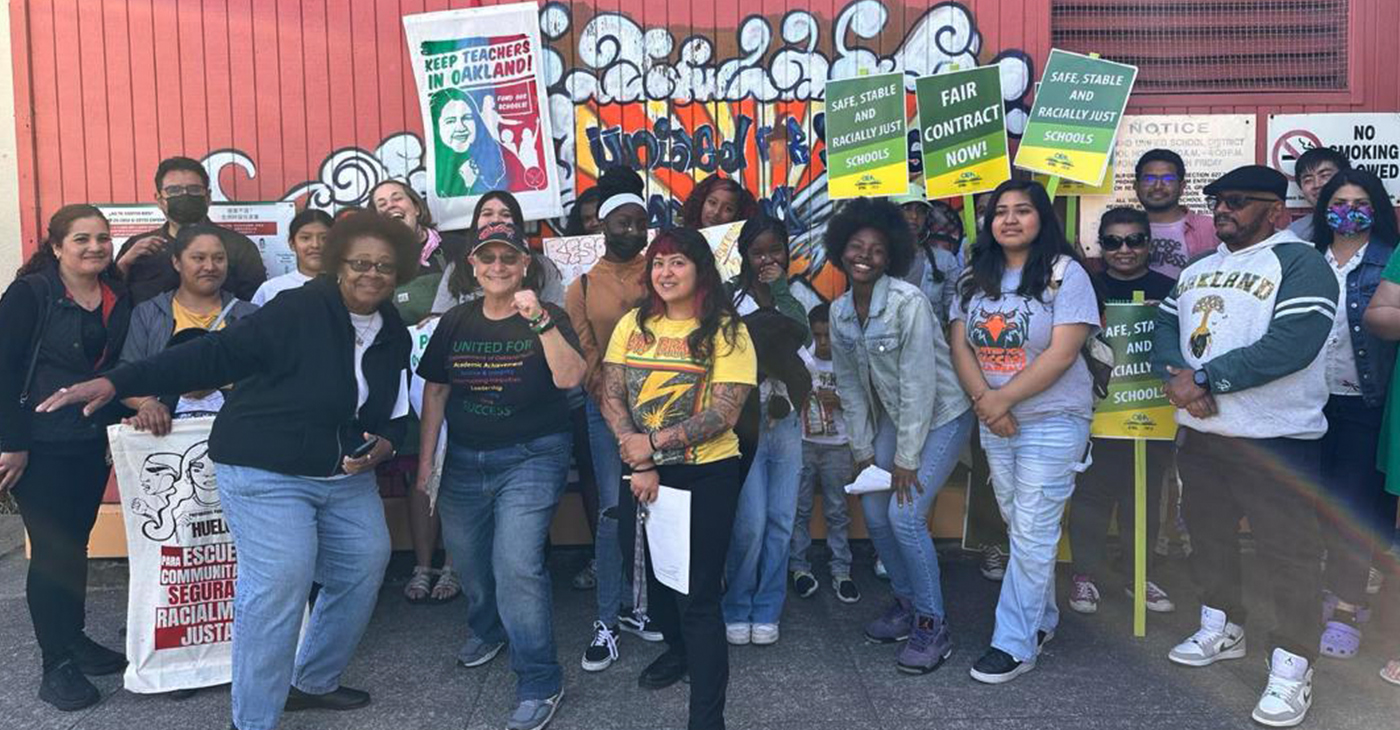Uncategorized
New Documentary “End Game: AIDS in Black America”

From left to right: Renatta Simone, producer, writer and director of End Game: HIV in Black America, Nel Davis and POST journalist Jesse Brooks. Nel and Brooks got a chance to tell their experience of being HIV positive in the film.
By Jesse Brooks
The public is invited to participate in a conversation at the Bay Area’s first public showing of PBS’s Frontline documentary “End Game: AIDS in Black America.”
This documentary explores how politics, social factors and cultural factors allowed the AIDS epidemic to spread rapidly in the African American community over the past three decades.
The film was originally released in July 2012, and premiered at the 2012 International AIDS conference held in Washington. It has done what Renatta Simone, producer, writer and director intended it to do, encouraging people to start to talk and be aware of the conditions African Americans face regarding HIV/AIDS in America.
In 1986, 20 percent of all people in the United States living with AIDS were African American. The most recent statistics from Center for Disease Control (CDC) indicate that 45 percent of all new cases of HIV infection are among African Americans.
In the film Simone explores why the HIV epidemic is so much more prevalent among African Americans than among whites. “The film is about race in America as much as it is about HIV, how a virus has exploited our inability to deal with our problems around race,” said Simone, who also produced the award winning series, “The Age of AIDS,” which appeared on Frontline in 2006.
Why is HIV so much worse in the Black Community? This is a question that comes up all the time at speaking engagements. This film gives the answer. Three years in the making, this groundbreaking documentary film tells the story of how, from the earliest days, prejudice, silence and stigma allowed the virus to spread deep into the Black community.
The film was shot coast to coast in Los Angeles, Oakland, Atlanta, Birmingham, Selma, New York, Boston and Washington, D.C.; in churches, clinics, a high school classroom, a prison, a nightclub, a restaurant kitchen and on the street.
Meet others from the film, like Nel Davis, who told her story of being 65-year-old Black woman, infected by a deacon she married from her church and how she found out his status when a piece of paper with the positive HIV test results fell out of his bible one day while she was cleaning.
According to Dr. Marsha Martin, an HIV prevention leader, “We have achieved some things as Black people in America because the civil rights movement got us to some places. But at the same time, AIDS is everywhere, showing us all the places that we have missed, saying look over here, look over here, and look over here!”
Martin has worked in Oakland with Get Screened Oakland, a mayoral initiative that encourages testing.
The showing is also a kick-off of a year-long calendar of events of two merging groups: the Bay Area Treatment Advocacy Network (BTAN) and the Bay Area Regional African American HIV/AIDS State of Emergency Coalition (BARAASEC).The two groups are joining forces to advance HIV treatment in the Black community and to ensure that the community is prepared to participate in the treatment process.
Whether watching “End Game” online or at the community conversation, activists have been at this for 30 years, and they are at a different point in the evolution of the crisis. Now is the time to be talking about the “End Game.”
“End game: AIDS in Black America” and an intimate conversation with the community, will take place at 3 p.m. on Sunday, Jan. 27 at the New Parkway Theatre, 474 24th St. in Oakland.
To purchase tickets for $10, go to Spectrumfilm012013.eventbrite.com or call (510) 575-8245.
Arts and Culture
Rise East Project: Part 3
Between 1990 and 2020, Oakland lost nearly half of its Black population due to economic and social forces. East Oakland, once a middle-class community, is now home to mostly Black families living in poverty.

The Black Cultural Zone’s Pivotal Role in Rebuilding Oakland’s Black Community
By Tanya Dennis
Between 1990 and 2020, Oakland lost nearly half of its Black population due to economic and social forces. East Oakland, once a middle-class community, is now home to mostly Black families living in poverty.
In 2021, 314 Oakland residents died from COVID-19. More than 100 of them, or about 33.8%, were Black, a high rate of death as Blacks constitute only 22.8% of Oakland’s population.
This troubling fact did not go unnoticed by City and County agencies, and the public-at-large, ultimately leading to the development of several community organizations determined to combat what many deemed an existential threat to Oakland’s African American residents.
Eastside Arts Alliance had already proposed that a Black Cultural Zone be established in Deep East Oakland in 2010, but 2020’s COVID-19 pandemic galvanized the community.
Demanding Black legacy preservation, the Black Cultural Zone (BCZ) called for East Oakland to be made an “unapologetically Black” business, commercial, economic development community.
Established initially as a welcoming space for Black art and culture, BCZ emerged into a a community development collective, and acquired the Eastmont police substation in Eastmont Town Center from the City of Oakland in 2020.
Once there, BCZ immediately began combating the COVID-19 pandemic with drive-thru PPE distribution and food giveaways. BCZ’s Akoma Market program allowed businesses to sell their products and wares safely in a COVID-compliant space during the COVID-19 shutdown.
Currently, Akoma Market is operated twice a month at 73rd and Foothill Boulevard and Akoma vendors ‘pop up’ throughout the state at festivals and community-centered events like health fairs.
“Before BCZ existed, East Oakland was a very depressing place to live,” said Ari Curry, BCZ’s chief experience officer and a resident of East Oakland. “There was a sense of hopelessness and not being seen. BCZ allows us to be seen by bringing in the best of our culture and positive change into some of our most depressed areas.”
The culture zone innovates, incubates, informs, and elevates the Black community and centers it in arts and culture, Curry went on.
“With the mission to center ourselves unapologetically in arts, culture, and economics, BCZ allows us to design, resource, and build on collective power within our community for transformation,” Curry concluded.
As a part of Oakland Thrives, another community collective, BCZ began working to secure $100 million to develop a ‘40 by 40’ block area that runs from Seminary Avenue to the Oakland-San Leandro border and from MacArthur Boulevard to the Bay.
The project would come to be known as Rise East.
Carolyn Johnson, CEO of BCZ says, “Our mission is to build a vibrant legacy where we thrive economically, anchored in Black art and commerce. The power to do this is being realized with the Rise East Project.
“With collective power, we are pushing for good health and self-determination, which is true freedom,” Johnson says. “BCZ’s purpose is to innovate, to change something already established; to incubate, optimizing growth and development, and boost businesses’ economic growth with our programs; we inform as we serve as a trusted source of information for resources to help people; and most important, we elevate, promoting and boosting Black folks up higher with the services we deliver with excellence.
“Rise East powers our work in economics, Black health, education, and power building. Rise East is the way to get people to focus on what BCZ has been doing. The funding for the 40 by 40 Rise East project is funding the Black Culture Zone,” Johnson said.
Alameda County
Help Protect D.A. Pamela Price’s Victory
Alameda County District Attorney Pamela Price is asking supporters of the justice reform agenda that led her to victory last November to come to a Town Hall on public safety at Montclair Presbyterian Church on July 27.

By Post Staff
Alameda County District Attorney Pamela Price is asking supporters of the justice reform agenda that led her to victory last November to come to a Town Hall on public safety at Montclair Presbyterian Church on July 27.
Price is facing a possible recall election just six months into her term by civic and business interests, some of whom will be at the in-person meeting from 6:00-9:00 p.m. at 5701 Thornhill Dr. in Oakland.
“We know that opponents of criminal justice reform plan to attend this meeting and use it as a forum against the policies that Alameda County voters mandated DA Price to deliver. We cannot let them succeed,” her campaign team’s email appeal said.
“That’s why I’m asking you to join us at the town hall,” the email continued. “We need to show up in force and make sure that our voices are heard.”
Price’s campaign is also seeking donations to fight the effort to have her recalled.
Her history-making election as the first African American woman to hold the office had been a surprise to insiders who had expected that Terry Wiley, who served as assistant district attorney under outgoing D.A. Nancy O’Malley, would win.
Price campaigned as a progressive, making it clear to voters that she wanted to curb both pretrial detention and life-without-parole sentences among other things. She won, taking 53% of the vote.
Almost immediately, Price was challenged by some media outlets as well as business and civic groups who alleged, as she began to fulfill those campaign promises, that she was soft on crime.
On July 11, the recall committee called Save Alameda for Everyone (S.A.F.E.) filed paperwork with the county elections office to begin raising money for the next step toward Price’s ouster: gathering signatures of at least 10% of the electorate.
S.A.F.E. has its work cut out for them, but Price needs to be prepared to fight them to keep her office.
In a separate sponsored letter to voters, Price supporters wrote:
“We know that you supported DA Price because you believe in her vision for a more just and equitable Alameda County. We hope you share our belief that our criminal justice system has to be fair to everyone, regardless of their race, gender, ethnicity, religion, or socioeconomic status.
“The Republican-endorsed effort is a blatant attempt to overturn the will of the voters and a waste of time and money. It is an attempt to silence the voices of those who want real justice. We cannot let these election deniers succeed.
“Will you make a donation today to help us protect the win?
“Please watch this video and share it with your friends and family. We need to stand up to the sore losers and protect the win. Together, we can continue to make Alameda County a more just, safe and equitable place for everyone.”
For more information, go to the website: pamelaprice4da.com
or send an e-mail to info@pamelaprice4da.com
Bay Area
Oakland Teachers Walk Out
After negotiating late into the night and months of fruitless bargaining with the Oakland Unified School District, Oakland teachers went out on strike Thursday morning. “Our (50-member) bargaining team has been working for seven months working, making meaningful proposals that will strengthen our schools for our students,” said Oakland Education Association (OEA) Interim President Ismael “Ish” Armendariz, speaking at press conference Monday afternoon.

OEA calls unfair labor practices strike after 7 months of negotiations.
By Ken Epstein
After negotiating late into the night and months of fruitless bargaining with the Oakland Unified School District, Oakland teachers went out on strike Thursday morning.
“Our (50-member) bargaining team has been working for seven months working, making meaningful proposals that will strengthen our schools for our students,” said Oakland Education Association (OEA) Interim President Ismael “Ish” Armendariz, speaking at press conference Monday afternoon.
“OUSD has repeatedly canceled bargaining sessions, has failed to offer meaningful proposals or counterproposals at a majority of the bargaining sessions and has repeatedly failed to discuss certain items,” Armendariz said.
“The days (of bargaining) have been long, and after hours of waiting, the superintendent finally showed up on Sunday night at 11:00 p.m.to meet with our team (for the first time),” he said. “(But) the district continues to come to the table unprepared, and this is unacceptable.”
“This is illegal, and OEA has filed an Unfair Labor Practice charge with the state Public Employment Relations Board (PERB). Under California law, OEA has a right to strike over unfair labor practices,” he said.
OEA represents 3,000 teachers, counselors, psychologists, speech pathologists, early childhood educators, nurses, adult education instructors and substitute teachers, serving 35,000 Oakland public school students. Other labor groups representing school employees include SEIU 1021 and construction unions.
In a press statement released on Tuesday, OUSD said it has been trying to avert a strike.
“The district will remain ready to meet with the teachers’ union at any time and looks forward to continuing our efforts to reach an agreement with OEA … We will continue to do everything possible to avoid a work stoppage.”
“Our children’s education does not need to be interrupted by negotiations with our union, especially given the major offer the District made on Monday,” other district press statements said. “We are committed to continuing to work with our labor leaders to discuss their salaries and support services for our students without the need for a strike.”
OUSD’s latest salary proposal, released this week, includes a 10% raise retroactive to Nov. 1, 2022, and a $5,000, one-time payment to all members.
OEA’s recent salary proposal asked for a 10% retroactive raise to all members, a one-time $10,000 payment to members who return for the 2023-2024 school year, and increases from $7,500 to $10,000 to salaries, based on years of experience.
In addition to pay demands, OEA is making “common good” proposals that serve families and the community, including protecting and enhancing special education programs, putting the brakes on closing schools in flatland neighborhoods, shared school leadership, safety, and support for students.
-

 Activism4 weeks ago
Activism4 weeks agoOakland Post: Week of March 27 – April 2, 2024
-

 #NNPA BlackPress4 weeks ago
#NNPA BlackPress4 weeks agoCOMMENTARY: D.C. Crime Bill Fails to Address Root Causes of Violence and Incarceration
-

 #NNPA BlackPress4 weeks ago
#NNPA BlackPress4 weeks agoFrom Raids to Revelations: The Dark Turn in Sean ‘Diddy’ Combs’ Saga
-

 #NNPA BlackPress4 weeks ago
#NNPA BlackPress4 weeks agoCOMMENTARY: Lady Day and The Lights!
-

 #NNPA BlackPress4 weeks ago
#NNPA BlackPress4 weeks agoMayor, City Council President React to May 31 Closing of Birmingham-Southern College
-

 #NNPA BlackPress4 weeks ago
#NNPA BlackPress4 weeks agoBaltimore Key Bridge Catastrophe: A City’s Heartbreak and a Nation’s Alarm
-

 #NNPA BlackPress4 weeks ago
#NNPA BlackPress4 weeks agoBaltimore’s Key Bridge Struck by Ship, Collapses into Water
-

 #NNPA BlackPress4 weeks ago
#NNPA BlackPress4 weeks agoBeloved Actor and Activist Louis Cameron Gossett Jr. Dies at 87










































